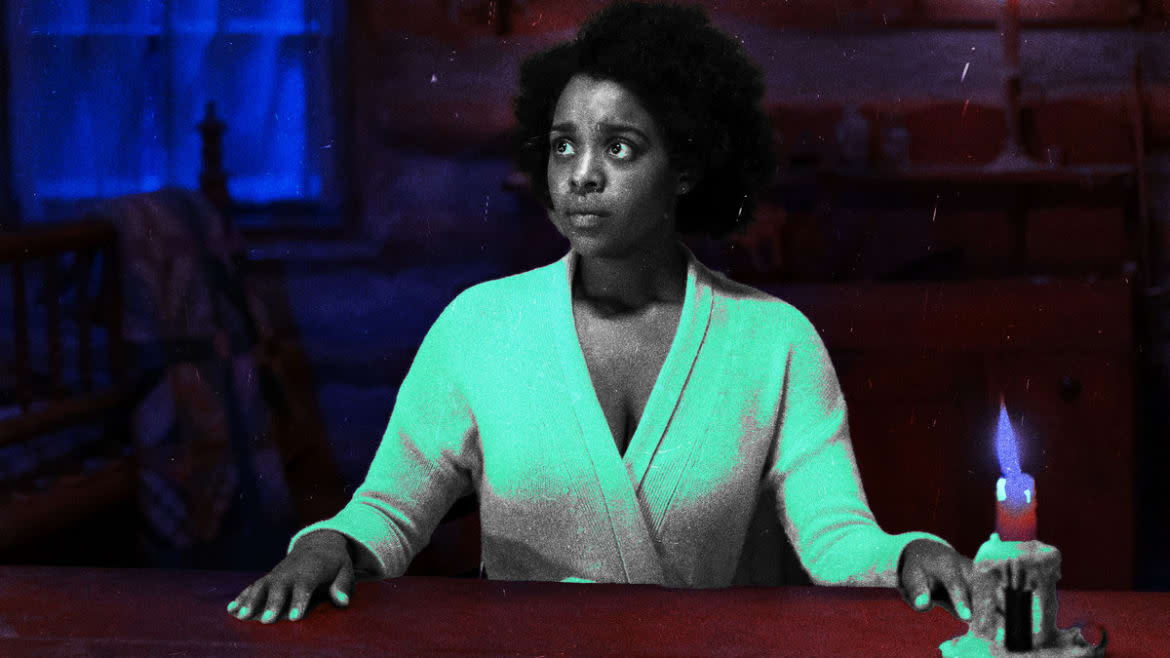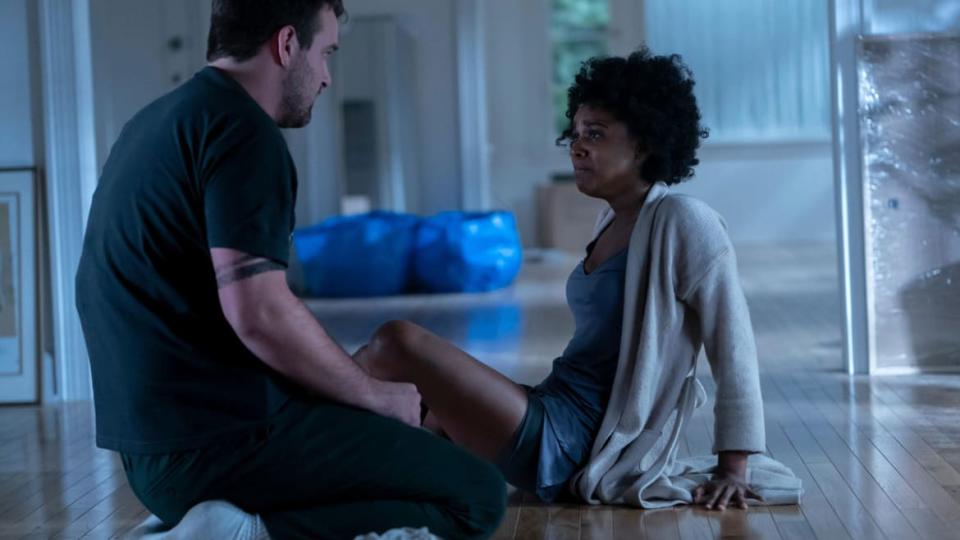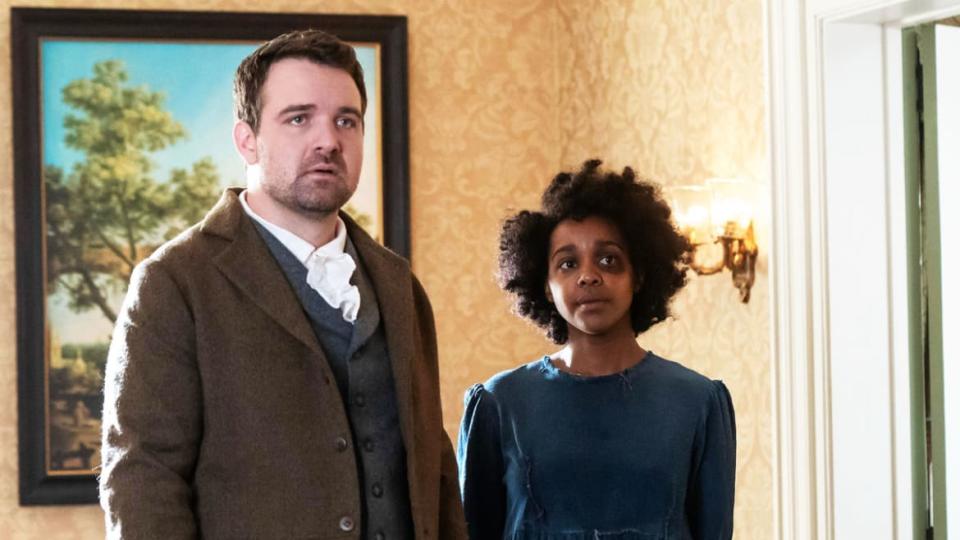‘Kindred’ Bungles Everything Beautiful About Octavia E. Butler’s Sci-Fi Masterpiece

Octavia E. Butler didn’t live to see any of her seminal science fiction works transition from page to screen. Still, after her untimely death in 2006, at age 58, her legacy has only grown in influence and import; her Afro-futuristic touches and subversions of the classically white male sci-fi canon continue to be themselves canonized. Which is why it’s a bit surprising that it’s taken this long for one of her classic books to be adapted—and extra disappointing that it’s such a misfire.
Kindred is one of the most highly regarded and widely read books in Butler’s oeuvre, in part because of its provocative premise. In 1976, Dana and her husband Kevin are unpacking their new home in Los Angeles, when Dana blacks out and falls to the floor. When she regains consciousness, she finds herself in a completely different place and time: a Maryland plantation in 1815. Dana, who’s Black, is immediately thrust into a fight for survival—until she suddenly is transported back to her own time period. The book follows Dana and, at times, Kevin (who is white), as she continues to be flung back and forth in history, trying to understand why and how to stop these horrifying journeys.
It’s a gripping story that mixes racial politics, historical fiction, and gender dynamics, with an enticing time-travel mystery at the center. Decades of acclaim made Kindred an obvious candidate for the first Butler adaptation. But Hulu’s take on Kindred, whose eight-episode first season drops all at once Dec. 13, is likely not what Butler fans have clamored for. The show, created by playwright Branden Jacobs Jenkins, plops Butler’s themes into a centrifuge and spits out a gray, cold, unappealing mush of an eight-hour drama. Bereft of the observational intimacy that made Dana’s story in the novel so heart-wrenching and shocking, this version of Butler’s story is a modern-day mystery-thriller—with a superficial exploration of racism for good (?) measure.

In Jenkins’ telling, it’s the present day. Dana (Mallori Johnson, doing her best) has just bought her own house in L.A., after selling the New York brownstone she inherited when her mother died. Not only has Dana moved in order to pursue her dream of writing for television, but she’s also closer to her only living family: her mother’s sister, Denise (Eisa Davis), and Denise’s husband Alan (Charles Parnell). Their relationship is strained, with Dana construing her aunt’s concern over her knee-jerk financial decision as frustrating over-protectiveness. She acts out by going home with the family’s waiter at dinner, Kevin (Micah Stock, charisma vacuum)—who quickly becomes involved in the wild time-travel journey Dana is about to embark upon.
The addition of these subplots (skeptical family; grief for dead mom; getting to know a new boyfriend) is meant to give the story another pillar beyond Dana’s travails on the Maryland plantation, where she is sent to in the middle of the night for unknown reasons. The show also introduces a set of next-door-neighbor Karens, who are instantly suspicious of a young Black woman moving into a big house in their upscale L.A. neighborhood. But Kindred is still most interested in what’s going on back in 1815, where Dana slowly tries to put together an explanation for why she’s suddenly on a plantation.
Yet instead of creating a contrast between what it’s like to be a Black woman today and what it was like to be a Black woman back then—perhaps obvious, but potentially thematically rich—Kindred is more invested in Dana’s pursuit of answers. There is curious little insight into how Dana’s position as an educated woman of color in a place where such a person was anomalous affects her ability to survive. Instead, she talks back to the plantation’s master, Thomas Weylin (Ryan Kwanten), as she blatantly tries to radicalize his slaves and young son, Rufus (David Alexander Kaplan). In so doing, she hopes to both affect change and also, most importantly, puzzle out her time travel debacle.

When Kevin inadvertently travels back with her, the show again bungles an opportunity to probe the racial taxonomy at play. Instead, Dana is sleuthing around, trying to get answers from Rufus and the other slaves, not worrying about if the master is going to catch her or not. Kevin, meanwhile, assumes the role of a bard and slave-owner; the Weylins all grow to love him. At night, he gets to listen to his music on the phone that traveled back with him, lying in the four-poster bed the Weylins set him up with.
All this Back to the Future stuff is supposed to be compelling enough to forgive the show’s trepidation around actively considering the racial valences here. Instead, it reads as an easy way out. Leaning into the sci-fi elements over the sociopolitics is both a disservice to Butler’s complex story and to viewers—because the answer to the show’s mystery isn’t some fancy mechanic to be dismantled. It’s tangled up in the same racial dynamics that the show otherwise dances around, to an unsatisfying degree.
Dana isn’t actually trying to make it back to the future—she instead wants to stay in the past as long as possible. There is one somewhat reasonable explanation for this (spoiler alert): Her mother, Olivia (Sheria Irving), is somehow still alive in 1815. She, too, traveled back in time and decided to just… stay put. This is a deviation from the novel, and it’s a shocking, poorly justified choice. And that Dana’s main goal isn’t bringing her mother back—something that any sci-fi fan knows would be a big ol’ timeline-ruining mistake anyway—but instead helping to improve conditions on the plantation is similarly bizarre. Things aren’t great in today’s world, but I don’t buy a Black woman liking the 21st century less than the 19th century South.
New on Hulu December 2022: ‘Darby of the Dead,’ ‘Kindred,’ and More
This comes to a head in the vexing season finale. Kindred uses its last 45 minutes to suddenly delve feet-first into the murky waters of, well, slavery. The show gets shockingly violent in this last episode, as Dana is forced to reckon with her decision to get way too invested in her seemingly simple plantation life. It’s frustrating, grotesque, and unsettling to watch.
Kindred treats the plantation as a playground for a central mystery that never becomes as interesting as Dana, Kevin, and the creators think it is. It’s frustrating, because the true visionary here—Octavia E. Butler—had the extraordinary ability to combine intrigue with brutality, fantasy, and keen observation. Her Dana is the Dana I wish got the chance to appear on screen: a character who is desperate to return home to 1976 and out of 1815, while understanding that neither era is especially safe for Black women. Better luck next time.
Get the Daily Beast's biggest scoops and scandals delivered right to your inbox. Sign up now.
Stay informed and gain unlimited access to the Daily Beast's unmatched reporting. Subscribe now.


